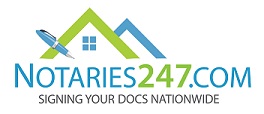Did you know that all signing agents are notary publics, but not all notary publics are signing agents? It is true: There are nearly 4.4 million notaries in the United States, and a good percentage of them are also loan signing agents. In companies and businesses, a notary or signing agent’s services are often in high need. Whether it is a corporate office, a bank, or a car dealership, having a notary onboard that can verify and witness legal documents is essential to ensuring a smooth and operational workday.
But what’s the difference between a notary and a signing agent? Although they start on similar paths, they are not the same thing. Essentially, notaries are there to verify identities and witness signatures while signing agents are certified to walk borrowers through specific loan-signing documents. That said, let’s explore the differences between loan signing agents and notary publics in greater detail.
Loan signing agents are notary publics who are certified to assist the lender in guiding the borrower through their loan documents. They might help answer any questions the customer has about their loan, whether it is for a vehicle, a home, or a business. Notary publics, on the other hand, do not have that additional certification. That means notaries do not have the ability or expertise to provide information to their customers, so their job is to only confirm the parties’ agreements and witness signatures for legal documents.
If you are still unsure whether your document or contract requires a notary public or a loan signing agent, then check out this quick guide on the differences between the two.
What Is a Notary Public?
A notary public is a public officer constituted by law who is certified to witness and confirm the signing of legal documents. When you work with a notary public, they will serve three important purposes:
- Confirm the identities of the participating parties.
- Witness signatures between them.
- Sign off on the validity of the agreement.
While notary publics are responsible for verifying identities and witnessing signatures, they are also certified to administer oaths and affirmations as well as certify copies of essential documents. Some documents that a notary might sign off on include the following: Closing Documents; Property Deeds; Loan Documents; Wills; Trusts; Custody Agreements; Powers of Attorney; Court Documents; Vendor contracts; Leases; Construction Agreements; and Employment Contracts.
What Is a Loan Signing Agent?
A loan signing agent (LSA) is a notary public with a level of certification that allows them to guide the borrower through the loan process. All LSAs must become familiar with how the loan process works so that they are able to accurately assist the lenders in explaining the contract to the customer.
Since LSAs are certified to assist borrowers in closing loans and notarize the agreements, they are most prominent in the mortgage and real estate industries. But these agents might also specialize in several other industries and processes, including: Seller Packages; Loan Modifications;Tax Loans;
Refinance Loans; Purchase Loans; Equity Loans and Lines of Credit; and Commercial Loans. Signing agents usually work at dealerships, banks, and mortgage loan companies so that they are usually only available onsite. If you have ever taken out a loan for a car or a home, then you likely worked with an LSA.
In conclusion, notary publics and loan signing agents are a crucial backbone to thousands of companies and individuals across the country. So whether you are taking out a loan for your house or need to notarize an important medical document, you will need access to a notary.
The good news is that you can find the right person for the job at Notaries247.com at https://www.notaries247.com.
Best of all? Certified and highly experienced notary agents from Notaries247.com will come to you —anytime, anywhere. They will also arrive prepared with your documents and even ship them out for you if necessary. So next time, skip waiting in line at your local government office or bank and go to Notaries247.com at https://www.notaries247.com
or call them at 800-807-1260.

